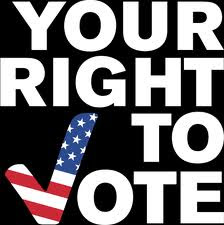From The Root by Cynthia Gordy
The speechifying continued at the NAACP Annual Convention in Houston as Vice President Joe Biden took the podium on Thursday.
Biden was pitch-hitting for President Obama, who taped a brief video for the convention (and who will appear in person at the National Urban League's annual conference later this month). Despite Obama's physical absence, Biden used his speech to forcefully defend his policies that have affected African Americans. And where the president probably would have been more congenial, his VP came out swinging.
Vice President Joe Biden addresses the 103rd NAACP Annual Convention in Houston Texas
"He passed the Affordable Care Act, a goal strived for by presidents starting with Teddy Roosevelt," he said to applause from the audience -- a sharp contrast to their loud, sustained disapproval over Mitt Romney's vow to them on Wednesday to repeal the health care law.
"He cut $100 billion from the federal debt over the next 10 years, providing access to affordable health care to 30 million Americans, 8 million black Americans who would never have had insurance."
On the notion of putting convictions before politics, Biden touted the president's stimulus bill and auto-industry bailout as tough decisions from the president that were unpopular but right. "He was right, saving a million jobs and creating 200,000 jobs in the automobile industry," he said. "General Motors now leads the world again, and Chrysler is the fastest-growing company in America."
... Biden closed his remarks by outlining the president's views on civil rights. In a hushed, sober tone, he asked the NAACP audience to reflect on their organization's history.
"Remember what this at its core was all about. It was about the franchise," he said before raising his voice to a shout. "It was about the right to vote! Because when you have the right to vote, you have the right to change things! And we -- the president and I, and Eric [Holder] and all of us -- we see a future where those rights are expanded, not diminished! Where racial profiling is a thing of the past! Where access to the ballot is expanded and unencumbered! Where there are no distinctions made on the basis of race and gender in access to housing and lending!"
He argued that Romney, who has, for example, supported voter-ID laws, sees a future in which voting is made harder -- and asked the crowd to imagine what a Romney Justice Department would look like.
"Imagine the recommendation for who is likely to be picked as attorney general or the head of the civil rights division, or those other incredibly important positions at Justice," he said. "Imagine what the Supreme Court will look like after four years of a Romney presidency. Folks, this election, in my view, is a fight for the heart and soul of America."
Read the full story @ The Root.
 The Richardson/North Dallas Democratic Club will host a Democratic Candidate Meet-and-Greet at Sonny Bryan’s Smokehouse in Richardson on Wednesday, July 25 from 5PM-7:30PM. (map)
The Richardson/North Dallas Democratic Club will host a Democratic Candidate Meet-and-Greet at Sonny Bryan’s Smokehouse in Richardson on Wednesday, July 25 from 5PM-7:30PM. (map)
